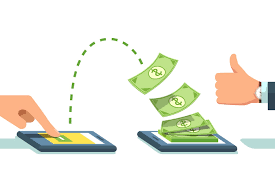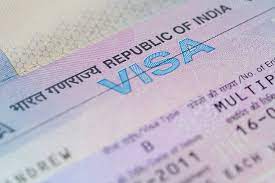Money Transfer Services in Pakistan
Money transfer services in Pakistan play a pivotal role in facilitating financial transactions, enabling individuals to send and receive money conveniently. In Pakistan, the landscape of money transfer has evolved significantly over the years, transitioning from traditional methods to digital platforms.
Traditional Methods of Money Transfer in Pakistan
Hawala System
The Hawala system, a centuries-old informal method of transferring money, has been prevalent in Pakistan. It involves transferring funds through a network of brokers without the involvement of formal financial institutions.
Banking Channels
Despite the dominance of informal methods like Hawala, banking channels remain a popular choice for money transfer in Pakistan. Individuals can utilize bank accounts and wire transfer services to send money domestically and internationally.
Emergence of Digital Money Transfer Services
With technological advancements, digital money transfer services have gained traction in Pakistan, offering convenient and efficient alternatives to traditional methods.
Introduction of E-Wallets
E-Wallets have emerged as a popular way to transfer money digitally. Users can store funds in their digital wallets and transfer them to recipients with ease, eliminating the need for physical cash transactions.
Mobile Banking Solutions
Mobile banking solutions provided by banks and telecom operators allow users to conduct financial transactions using their mobile phones. This includes transferring funds, paying bills, and purchasing goods and services.
Popular Money Transfer Services in Pakistan
Several digital platforms have emerged as prominent players in the money transfer market in Pakistan, catering to the diverse needs of consumers.
JazzCash
JazzCash, operated by Jazz, Pakistan’s leading telecom operator, offers a range of financial services, including money transfers, bill payments, and mobile top-ups. Users can access JazzCash services through their mobile phones or at designated agent locations across the country.
EasyPaisa
EasyPaisa, a joint venture between Telenor Pakistan and Tameer Microfinance Bank, provides convenient and accessible financial services to millions of Pakistanis. With EasyPaisa, users can send money, pay bills, and purchase goods and services at authorized merchants.
UBL Omni
UBL Omni, offered by United Bank Limited (UBL), is a branchless banking service that enables users to conduct financial transactions through a vast network of agents. From money transfers to utility bill payments, UBL Omni offers a wide range of services to its customers.
Comparison of Different Money Transfer Services
When choosing a money transfer service, individuals consider various factors such as transaction fees, accessibility, and security measures.
Transaction Fees
Different money transfer services may have varying fee structures, including flat fees or percentage-based charges. Users should compare these fees to determine the most cost-effective option for their needs.
Accessibility and Convenience
The accessibility of money transfer services is crucial, especially in rural areas where access to traditional banking infrastructure may be limited. Services with extensive agent networks and user-friendly interfaces offer greater convenience to customers.
Security Measures
Security is paramount in money transfer services to protect users’ funds and personal information. Robust security protocols, such as encryption and two-factor authentication, enhance trust and confidence among users. When sending the money also know about the dollar to pkr rate today.
Benefits of Using Money Transfer Services
The adoption of digital money transfer services brings several benefits to both senders and recipients.
Speed of Transactions
Digital money transfer services facilitate near-instantaneous transactions, allowing recipients to receive funds promptly, even across long distances.
Accessibility to Unbanked Population
For the unbanked population in Pakistan, digital money transfer services provide access to formal financial services, fostering financial inclusion and economic empowerment.
Transparency and Traceability
Digital transactions offer greater transparency and traceability compared to traditional methods, reducing the risk of fraud and ensuring accountability in financial transactions.
Challenges Faced by Money Transfer Services
Despite the advantages, money transfer services in Pakistan encounter various challenges that hinder their widespread adoption and effectiveness.
Regulatory Issues
Regulatory frameworks governing digital financial services in Pakistan are still evolving, creating uncertainty and compliance challenges for service providers.
Security Concerns
The digital nature of money transfer services makes them susceptible to cybersecurity threats such as hacking and phishing attacks, posing risks to users’ funds and personal information.
Infrastructure Limitations
Inadequate digital infrastructure, especially in rural areas, poses challenges for the widespread adoption of digital money transfer services, limiting their reach and accessibility.
Future Trends in Money Transfer Services
The future of money transfer services in Pakistan is marked by technological innovations aimed at enhancing efficiency, security, and user experience.
Integration of Blockchain Technology
Blockchain technology holds promise for revolutionizing money transfer services by providing secure, transparent, and decentralized transaction networks.
Expansion of Digital Wallet Features
Digital wallets are expected to evolve beyond simple money transfer platforms, offering additional features such as investment opportunities, insurance services, and loyalty programs.
Enhanced Security Protocols
To address cybersecurity threats, money transfer service providers will continue to invest in advanced security protocols such as biometric authentication and blockchain-based encryption.
Conclusion
Money transfer services in Pakistan have undergone a significant transformation, transitioning from traditional methods to digital platforms. While digital solutions offer convenience and efficiency, they also face challenges related to regulation, security, and infrastructure. However, with ongoing technological advancements and regulatory reforms, the future looks promising for the evolution of money transfer services in Pakistan.
Unique FAQs
Are digital money transfer services secure in Pakistan?
Answer: Yes, digital money transfer services in Pakistan employ advanced security measures such as encryption and two-factor authentication to safeguard users’ funds and personal information.
How can I send money to someone in a remote area of Pakistan?
Answer: You can use digital money transfer services with extensive agent networks to send money to remote areas of Pakistan conveniently.
What are the fees associated with digital money transfer services?
Answer: Fees for digital money transfer services vary depending on factors such as the amount transferred and the service provider. It’s essential to compare fee structures to choose the most cost-effective option.
Can I use mobile banking solutions without a bank account?
Answer: Some mobile banking solutions in Pakistan offer services to unbanked individuals, allowing them to access basic financial services using their mobile phones.
How is blockchain technology expected to impact money transfer services?
Answer: Blockchain technology is expected to revolutionize money transfer services by providing secure, transparent, and decentralized transaction networks, reducing costs and enhancing efficiency.



